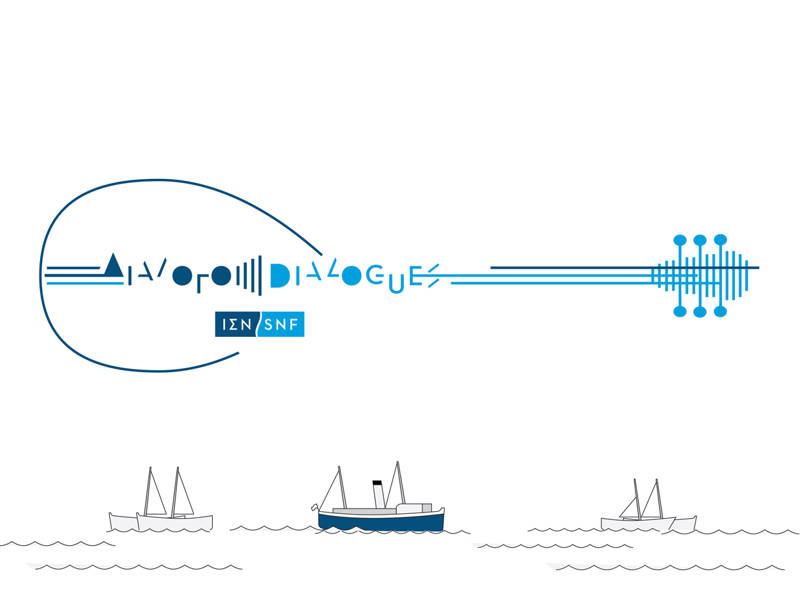
Rebetiko 101: A Playlist
Fostered in cramped, smoky bars by people whom social displacements had left on the margins of society, rebetiko developed as an opposite number to the sort of music that was broadly understood or accepted.
Yet today, the music’s captivating, indelible sound has carried it beyond the Mediterranean and embedded it in culture around the world. Misirlou, a tune that’s undoubtedly familiar even if you can’t name it (think of the surf rock earworm that opens Pulp Fiction), was first known to be recorded by rebetiko musician Tetos Demetriades in 1927. Global audiences have come in contact with rebetiko through works of fiction like Jeffrey Eugenides’s Pulitzer Prize-winning Middlesex, through its inscription on the UNESCO Intangible Cultural Heritage Lists, and through the traditions of the worldwide Greek diaspora.
A fuller introduction to rebetiko requires diving back into its roots, and that’s exactly what our March DIALOGUES event will do. We’re going to Syros, the island birthplace of Markos Vamvakaris, the “patriarch of rebetiko,” known mononymously as Markos. Syros is also the home of En Chordais & Organois (or “The Great School of Markos”) a non-profit dedicated to the preservation and sharing of rebetiko, traditional, and folk music. Founded in 2017 with the involvement of renowned contemporary composer Stavros Xarchakos and supported by a grant from the Stavros Niarchos Foundation (SNF), En Chordais & Organois offers lessons to children to keep musical tradition vibrant.
Join us for the DIALOGUES in person on Syros or via livestream at SNF.org/live on March 27th. Manges and koutsavakides welcome.
In the meantime, dive into the world of rebetiko with this playlist curated by SNF Program Officer Spyros Alexopoulos. Listen through the Spotify playlist below.
With support from SNF, one of the richest collections of rebetiko music, documents, images, and instruments will soon be digitized and available online through the “Virtual Museum” of the Kounadis Archive.
Of course, rebetiko is by no means the only important Greek musical tradition. SNF has supported the preservation, sharing, and enjoyment of Greek musical traditions in collaboration with a range of grantee organizations. The Foundation has provided repeated support for the Museum of Greek Folk Musical Instruments in Athens, in 2015 gave grant support to all 43 music schools that existed in Greece at that time, and has taken engagement with traditional music all the way back with support for a project to reconstruct and play ancient Greek musical instruments. SNF has also supported efforts to put musical idioms from across the Mediterranean in dialogue with one another through the Medinea network.
Inextricable from efforts to preserve and share musical traditions are questions of access. Who is able to share in the enjoyment and appreciation of those musical traditions? As a guiding principal of its worldwide grant making, SNF seeks to increase access to artistic and cultural resources, including in music. In New York City, for instance, repeated support to Make Music New York and the Brooklyn Academy of Music encourages New Yorkers to make and enjoy music.
Join us for the March DIALOGUES, give the playlist a listen, and enjoy the music!
The songs included:
1. Fragosiriani – Markos Vamvakaris
2. Hariklaki – Rita Ampatzi
3. To Haremi sto Hamam – Anestis Delias
4. Giftopoula – Giorgos Batis
5. Antonis o Varkaris o Seretis – Markos Vamvakaris
6. Karantouzeni – Markos Vamvakaris
7. Prin to Harama – Odisseas Moshonas, Stellakis Perpiniadis
8. Otan ta Dio sou Matia (Rantevou san perimeno) – Giannis Papaioannou
9. Mes tis Pentelis ta Vouna – Stratos Pagioumtzis
10. Hasapaki den se Thelo Pia – Antonis Diamantidis Ntalgas
11. Mes tou Vavoula ti Gouva – Stelios Keromitis
12. Mpouzouki mou Diplohordo – Markos Vamvakaris, Stratos Pagioumtzis
13. Na giati perno – Sofia Karivali
14. Zempekano Spaniolo – Stratos Pagioumtzis
15. Ti sou leei i Mana sou gia mena – Kostas Roukoynas
16. Hatzikiriakio – Stellakis Perpiniadis, Stratos Pagioumtzis
17. San Magemeno – Dimitris Gkogkos
18. Mousourloum (Misirlou) – Mihalis Patrinos
19. Isouna Ksipoliti – A. Kostis